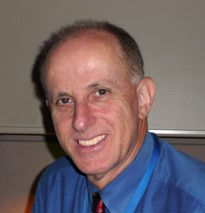 Luis Kun
Luis Kun This is my first column as the 2023–2024 President of the IEEE Society on Social Implications of Technology (SSIT). Many IEEE individuals belong exclusively to an IEEE Society where they meet others with similar interests and perhaps through publications and conferences they network and improve their professional skills. Other IEEE members become part of a working group or committee, thus increasing their chances of finding valuable contacts as well as allowing others to observe their knowledge and contributions to their field of interest. The year 2022 was my 40th year of IEEE membership. Being a volunteer at the IEEE had and still has incredible effects on both my professional as well as my personal life. I would like to use this first President’s Message of my term to share with you what, to me, became the unexpected value of volunteering.
I felt there was an important role for engineers to educate U.S. Congressional leaders and their staffers in regard to science and technology.
In 1986, as I moved with IBM from Dallas, TX, USA, to Gaithersburg, MD, USA, two former EMBS Presidents (Al Potvin and Joe Bronzino) insisted that I become part of the IEEE USA Health Care Engineering Policy Committee (HCEPC which in 1995 became the Medical Technology Policy Committee). I was ignorant of anything related to Technology Policy, so at first, I was reluctant to do this. But I discovered that most U.S. Congressional leaders and
their staffers were uneducated in regard to science and technology. I felt there was an important role for engineers to educate them. At the HCEPC, I created and led the High Performance Computers and The Unexpected Value of Volunteering Communications (HPCC) and Electronic Medical Record (EMR) Working Group. The Voluntary use of Healthcare Identifiers and the Genetic Information Nondiscrimination Act of 2008 (in terms of medical insurance and employment discrimination) are two examples of IEEE-USA Position Statements produced by volunteers from this group, approved by the IEEE Board of Governors, and later distributed among U.S. congressional leaders.
When you actively participate in an area in which you are “passion-driven,” others notice, and opportunities will open for you.
In February 1995, when I ended my directorship position with Cedars Sinai Medical Center in Los Angeles, I received a call from the Director of the Agency for Health Care Policy and Research (AHCPR’s) Center for Information Technology, Dr. Mike Fitzmaurice, an economist who also happened to be a volunteer at the HCEPC. Mike heard me speak on HPCC and related topics at the HCEPC and his Agency was suddenly funded and needed someone to represent them with the Federal community on related topics. In 1986 and 1991, then U.S. Senator Al Gore successfully introduced HPCC Bills in the Senate, and AHCPR was funded on Computer Patient Records, Telemedicine, and Computer Decision Support Systems. The agency needed someone to lead them with 15 other Federal Agencies in these fields including the Next-Generation Internet. I was offered and accepted to be AHCPR’s Senior IT Advisor to what became one of the best and most fulfilling jobs of my professional career. I prepared their program descriptions in three consecutive documents: “Supplement to the President’s Fiscal Years 1997–1998–1999 Budgets,” published in the President’s HPCC Implementation Plan. I was also a co-writer of the following Committee on Computing, Information and Communication documents: Advancing the Frontiers of Information Technology, Technologies for the 21st Century, and Networked Computing for the 21st Century, NSTC/Executive Office of the President, and Telemedicine Report to Congress (1997). Later, in 2002, 2004, and 2008, I edited three special issues of the EMBS Magazine that included introductions by Democratic and Republican U.S. Senators and members of the U.S. Executive Branch,
as well as articles “explaining” bioterrorism, homeland security, and critical infrastructure protection, respectively. They were distributed among U.S. Congressional leaders.
When you actively participate in an area in which you are “passion-driven,” others notice, and opportunities will open for you. For young people, I suggest
find your passion, volunteer, and get involved.
Author Information
Luis Kun is the 2023–2024 President of the IEEE Society on Social Implications of Technology. He is a distinguished professor emeritus, William J. Perry
Center for Hemispheric Defense Studies, National Defense University, Washington, DC 20319 USA. Email: Luis Kun; l.kun@ieee.org.






 JOIN SSIT
JOIN SSIT